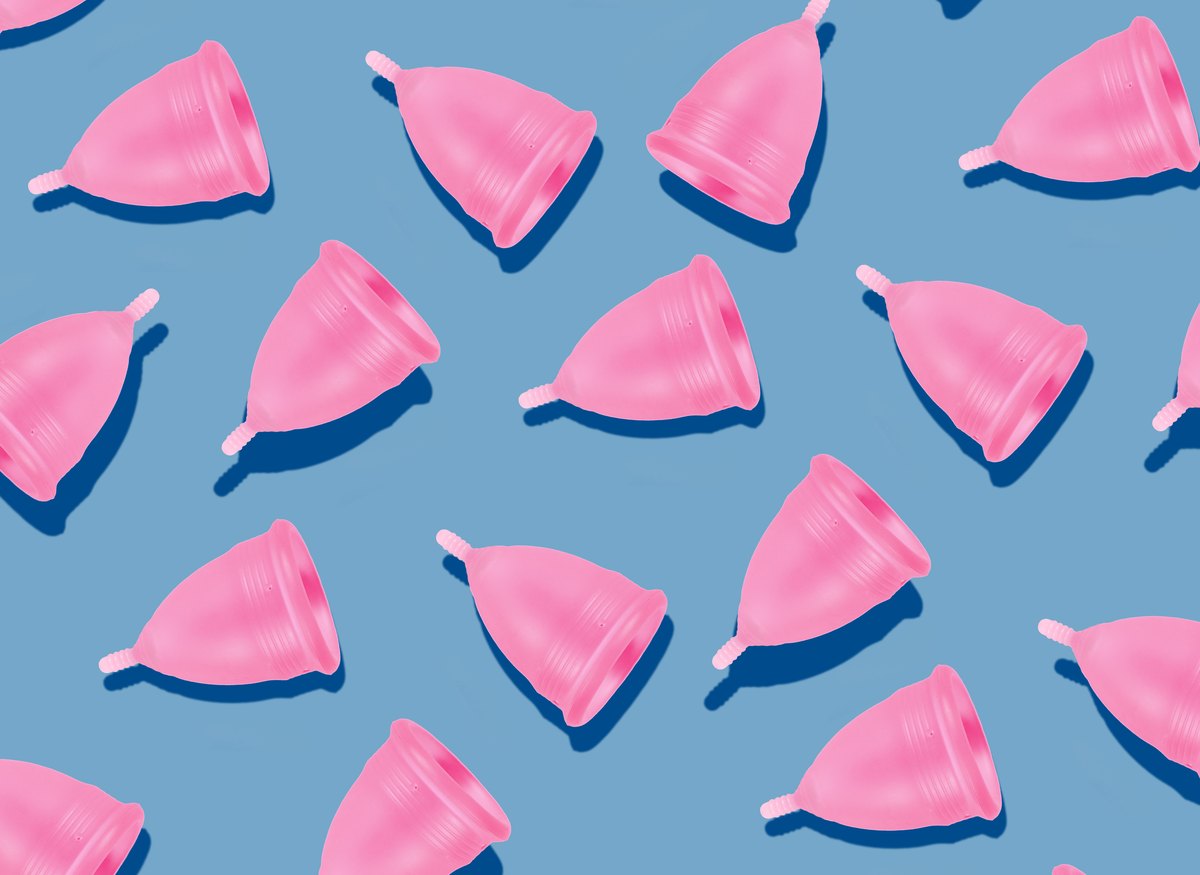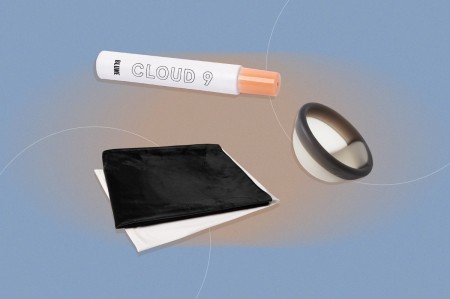
Advertisements
Real talk: Menstruation can be exceptionally unpleasant (period farts, bloating and cramps, we're looking at you). So, if your flow visits more frequently — say, a period twice a month — you might be freaking out a bit. After all, no one wants to deal with double the trouble.
Video of the Day
Still, you might also be worried about whether bleeding bimonthly is a cause for concern. So, is it normal to have your period twice a month?
Well, it depends. Sometimes, shedding your uterine lining twice in one month is NBD, while other times, it can indicate a more serious health issue.
"Anytime your period changes significantly, especially if it is heavier, lasts much longer or results in large blood clots or pain," you should talk to your doctor, says Angela Marshall, MD, a board-certified internist and the CEO of Comprehensive Women's Health. These can all be signs of an underlying medical condition.
Likewise, "whenever anyone is experiencing symptoms associated with menstruation that are impacting their lives in a serious way, whether it is frequency of periods, length of periods, pain, irritability or mood," don't just grin and bear it, says Nisha Verma, MD, a complex family planning specialist and the Darney-Landy Fellow at the American College of Obstetricians and Gynecologists. Period-related problems shouldn't diminish your quality of life.
We spoke with experts to understand why you get your period twice a month and when you should see a doctor.
Warning
If you have to change your tampon or pad after less than two hours or you pass blood clots that are quarter-sized or bigger, visit your doctor to avoid complications like anemia, according to the Centers for Disease Control and Prevention.
1. You Have a Short Menstrual Cycle
Indeed, you can get your period twice in a month. And for some people, a bimonthly flow is totally typical.
Here's why: "A normal menstrual period may last between 21 and 35 days, so many [people] with normal menses may still have more than one period per month," Dr. Verma says.
In other words, if you have a shorter cycle, you can bleed twice in the span of 30 days.
2. Perimenopause
Your bimonthly menses may be a byproduct of perimenopause, the time of transition to menopause that marks the end of your reproductive years.
During perimenopause, "as the ovaries start to decline in estrogen production, they stop the ovulation process, which results in what we call anovulatory cycles," Dr. Marshall says, meaning you don't ovulate (or release an egg from your ovaries).
But as ovulation becomes more erratic, your periods can become irregular. "When the hormone levels fall, it disrupts this entire process," and this can confuse your uterus about when it should shed its lining, Dr. Marshall says. Sometimes, the result is a more frequent flow.
Per the Mayo Clinic, other signs of perimenopause include:
- Hot flashes and sleep problems
- Mood changes
- Vaginal and bladder problems
- Decreasing fertility
- Changes in sexual function
- Loss of bone
- Changing cholesterol levels
3. Uterine Fibroids
Uterine fibroids — benign tumors that grow in and on your uterus — can sometimes cause bleeding.
Fibroid statistics show these growths can vary in size from 1 millimeter to 20 centimeters (that's as large as a watermelon) and are very common — between 40 and 80 percent of people assigned female at birth (AFAB) have fibroids, according to the Cleveland Clinic.
While most fibroids don't cause symptoms, larger growths can bring things like bleeding. "At times, this bleeding can be very heavy, and it can occur both with the cycle and at periods (no pun intended) that are outside of the normal menstrual cycle," Dr. Marshall says. In other words, this excess bleeding can make it appear that you're getting your period twice a month.
Advertisements
According to the Cleveland Clinic, other symptoms may include:
- A feeling of fullness in your lower abdomen/bloating
- Frequent urination or inability to urinate/completely empty yourbladder
- Pain during sex
- Low back pain
- Constipation
- Chronic vaginal discharge
- Increased abdominal distention (enlargement)
Tip
Talk to your doctor about the best way to treat your fibroids, which may include taking over-the-counter pain medicine, birth control or other hormonal therapies, per the Cleveland Clinic.
4. Thyroid Issues
Your thyroid could be to blame for your bimonthly bleeding.
That's because your thyroid plays a pivotal role in your menstrual cycle, so if it produces too much or too little thyroid hormone, your periods may become abnormally light, heavy or irregular, according to the Office on Women's Health.
Put another way, "thyroid problems can cause issues with the hormonal synchrony that triggers ovulation and uterine lining shedding," Dr. Marshall says.
And if your hormones become unbalanced, a bimonthly menses may occur.
5. Endometriosis
Getting your period twice a month can be a side effect of endometriosis, a condition where the uterine lining tissue grows in other parts of the body (besides the inside of the uterus), Dr. Marshall says.
"This tissue can occasionally cause period disruption, pain and heavy bleeding," she explains.
Endometriosis affects as many as 10 percent of people AFAB between the ages of 25 and 40, according to Johns Hopkins Medicine.
In addition to an abnormal menstrual flow, this condition can also cause the following symptoms:
- Pain during intercourse or tampon insertion
- Excessive menstrual cramps in the abdomen orlower back
- Infertility
- Painful urination during periods
- Painful bowel movements during periods
- Other gastrointestinal problems, such as diarrhea, constipationand/or nausea
Tip
Talk to your doctor to determine the best way to manage excessive menstruation from endometriosis, including treatments like over-the-counter pain medicine, birth control, hormonal therapy or surgery, per Johns Hopkins Medicine.
6. Skipping Birth Control
Forget to take your birth control pill? This can mess with your monthly menses.
"Imperfect use of birth control can cause more-frequent periods or bleeding between periods," Dr. Verma says.
That's because it can "disrupt the hormonal synchrony that controls ovulation and the menstrual cycle," Dr. Marshall says.
7. Weight Gain
Putting on a few pounds can perturb your period, too.
"Weight gain, and, in particular, changes in body fat, can cause a disruption in the reproductive hormones, which are mostly fat soluble," Dr. Marshall says. So, an increase in body fat can upset your hormonal balance, bringing about an irregular period.
8. Stress
Stress can also be the source of your twice-monthly menses.
Indeed, "stress-related hormones can disrupt reproductive hormones, resulting in period changes," Dr. Marshall says. "Cortisol is one of the main hormones that can alter the hormonal balance necessary for normal menstrual cycle and blood flow."






